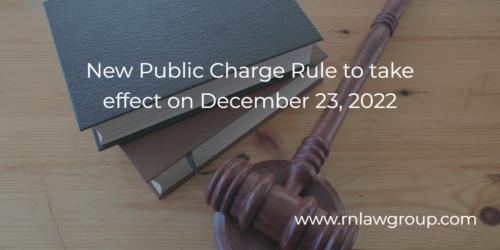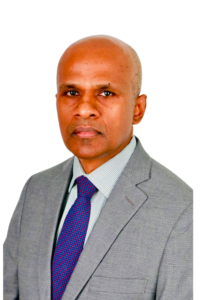
New Public Charge Rule to take effect on December 23, 2022
Section 212(a) (4) of the Immigration and Nationality Act (INA) renders noncitizens inadmissible if they are “likely at any time to become a public charge.”
The public charge rule applies to noncitizens requesting admission to the U.S. or applying for lawful permanent residence from within the U.S. Under INA, a noncitizen, likely at any time to become primarily dependent on the government for subsistence, as demonstrated by either the receipt of public cash assistance for income maintenance or institutionalization for long term care at government expense can be denied admission or lawful permanent residence.
The 2019 public charge rule, which was ultimately vacated and no longer if effect, had a harmful effect of discouraging individuals from seeking benefits like Children’s Health Insurance Program (CHIP), Supplemental Nutrition Assistance Program (SNAP), and other government services for which they, their children, or their families were eligible, out of fear of jeopardizing their immigration status.
DHS will no longer consider in public charge determinations benefits received by family members other than the applicant. DHS will also not consider receipt of certain non-cash benefits for which noncitizens may be eligible. Instead DHS will limit such considerations to public cash assistance for income maintenance and long term institutionalization at government expense based on the totality of the circumstances of a public charge inadmissibility determination under section 212(a)(4)(A) and (B) of the INA. The publication of this rule in the federal register avoids confusion by formally codifying the historical understanding of ‘public charge’ that had been in effect for decades.
While the final rule will be effective on December 23, 2022, does not expand eligibility for Medicaid, CHIP, or other benefits to more people but provide clarity and consistency for noncitizens on how DHS will administer the public charge ground of inadmissibility.
Hari Subhash is a staff attorney at Reddy Neumann Brown PC He works in the H-1B Department where he assists clients through all phases of the non-immigrant visa process.
Attorney Hari is a law graduate of the University of Pune. He subsequently received his LL.M from the University of Arizona, James E Rogers School of Law. He has over 10 years of experience as a lawyer in civil suits, labor and employment law, family law, personal injury, and ADR proceedings in India. During 2018 – 2022, he volunteered at Bankruptcy Assistance Center, Washington DC. Since 2019, he has been working as an attorney in the areas of immigration, bankruptcy, and personal injury in the United States. As an immigrant himself, he hopes to continue to play a role in helping individuals to start their journey in the United States lawfully and all it offers.
Reddy & Neumann has been serving the business community for over 20 years and is Houston’s largest immigration law firm focused solely on US. Employment-based immigration. We work with both employers and their employees, helping them navigate the immigration process quickly and cost-effectively

